Family Medicine Advocacy on the Global Stage
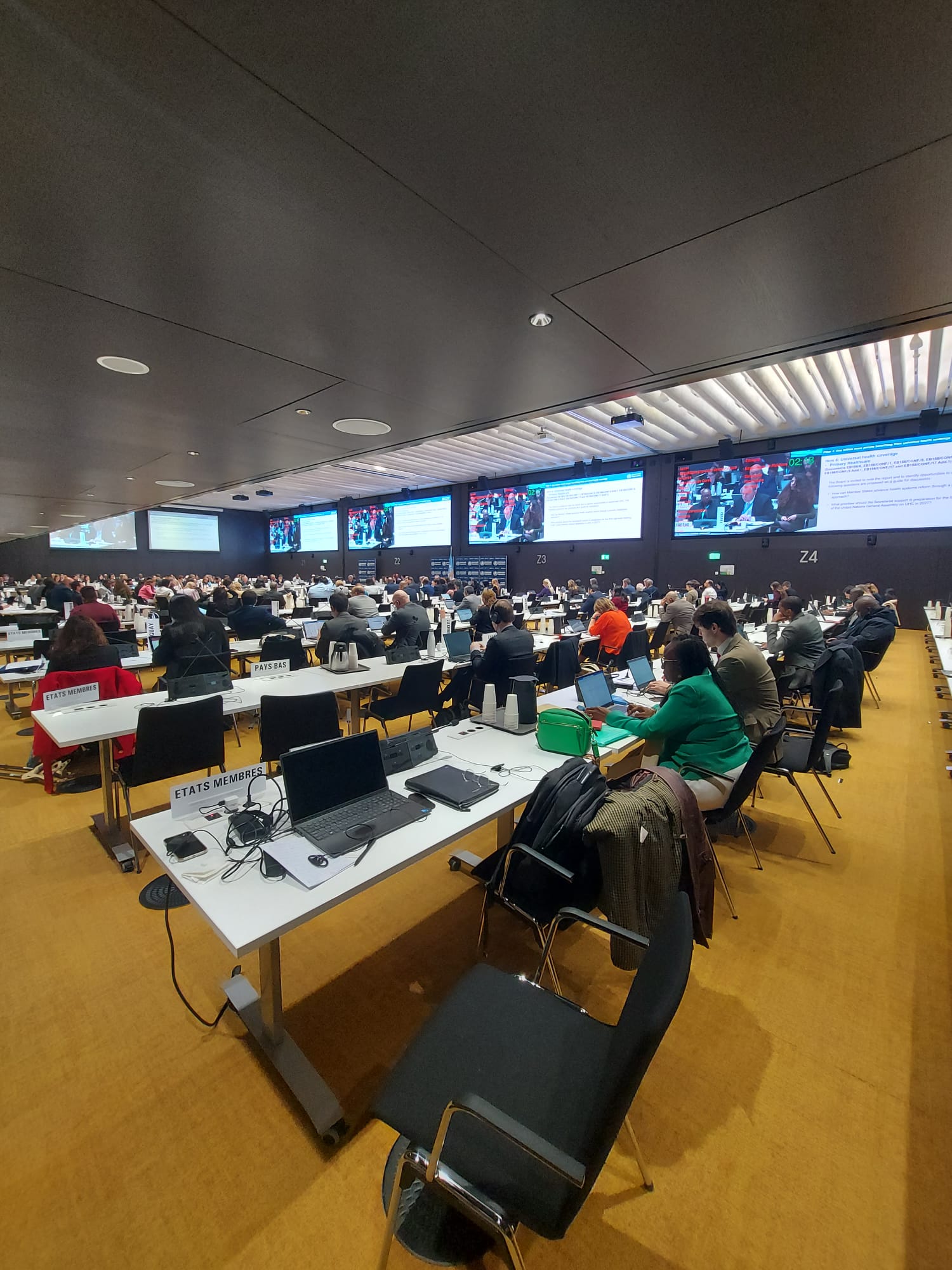 Family Medicine Advocacy on the Global Stage: WONCA's Role at the 156th WHO Executive Board Meeting
Family Medicine Advocacy on the Global Stage: WONCA's Role at the 156th WHO Executive Board Meeting
Family Medicine Advocacy on the Global Stage: WONCA's Role at the 156th WHO Executive Board Meeting
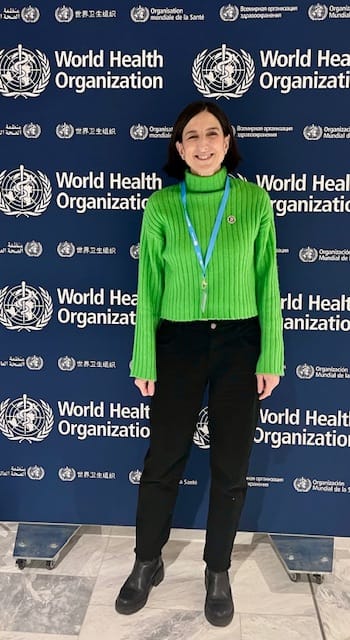
As WONCA's WHO Liaison Officer, I had the privilege of representing family doctors worldwide at the 156th Executive Board (156 EB) meeting of the World Health Organization (WHO). This platform provided a vital opportunity to engage with key stakeholders and advocate for the crucial role of family medicine in strengthening primary healthcare on a global scale.
The 156 EB Agenda included several items organized in four pillars.
- One billion more people benefiting from universal health coverage.
- One billion more people better protected from health emergencies.
- One billion more people enjoying better health and well-being.
- More effective and efficient WHO providing better support to countries.
During the meeting, member states discussed the implications of the U.S. withdrawal of its contribution to the WHO budget, which accounts for nearly 20% of the organization's funding. They agreed to seek a collaborative solution to address this shortfall. The reduction in funding is expected to impact the functioning of several key WHO programs.
WONCA's Statements at the 156th WHO Executive Board Meeting
WONCA delivered four statements as a non-state actor related to crucial topics of the agenda, each highlighting critical issues aligned with our mission to advance primary healthcare.
Universal Health Coverage (UHC)
Regarding Universal Health Coverage (UHC), the statement highlighted that the WHO's UHC program is built on the foundational values of primary healthcare (PHC), which include comprehensive care, accessibility, continuity, coordination, and community connection. Family doctors are central to delivering these values. Evidence demonstrates that populations with consistent access to family doctors experience better survival rates and reduced reliance on emergency services. WONCA urges Member States to prioritize family medicine specialization and develop strategies to ensure universal access to well-trained family doctors, essential for addressing non-communicable diseases, aging populations, and health inequities.
Health Workforce Prioritization
Within the agenda, we delivered another statement regarding Health Workforce Prioritization. WONCA called for stronger recognition of family doctors as essential members of primary healthcare teams. They provide comprehensive, patient-centered care across diverse health domains, ensuring continuity and accessibility. WONCA remains committed to advancing family medicine education, equipping doctors with the skills needed to meet evolving healthcare demands. Strengthening the role of family doctors within interprofessional teams is crucial for addressing medical deserts and achieving UHC. Investing in family medicine is key to building resilient health systems that leave no one behind.
Pandemic Preparedness and the Role of Family Doctors
We delivered a statement about Pandemic Preparedness and the Role of Family Doctors. Family doctors are the backbone of primary healthcare, fostering trust and ensuring continuity of care within communities. They play a crucial role in public health measures, including crisis response and vaccination efforts. Despite this, family doctors remain underrepresented in national and global health crisis planning. WONCA urged WHO and Member States to formally integrate family doctors into decision-making bodies for emergency preparedness and response. Their inclusion will strengthen health system resilience and improve public health outcomes.
Commitment to Planetary Health
On agenda items for health and well-being, we emphasized our Commitment to Planetary Health. Environmental factors contribute to nearly 23% of global deaths, with climate change exacerbating non-communicable diseases. WONCA recognizes climate action as a health priority and advocates for sustainable practices in primary care to mitigate these effects. We urge WHO and policymakers to support primary care in adopting climate-conscious strategies, ensuring that primary care professionals are equipped and trained to address health challenges related to climate change.
Key Meetings and Collaborations
Beyond these statements, as WONCA WHO liaison person, I engaged in several key meetings that reinforced our commitment to strengthening family medicine and health systems worldwide. These discussions highlighted WONCA's impact in international health policy and deepened collaborations with WHO departments.
Meeting with the Ageing and Life Course Department
I met with the Ageing and life course department, to talk about the Integrated Care for Older People (ICOPE) version 2 recently launched. The meeting with Dr. Yuka Sumi and Dr. Matteo Cesari focused on disseminating the ICOPE 2 document, organizing workshops at WONCA conferences, and strategies for translating ICOPE 2 into WHO's six official languages.
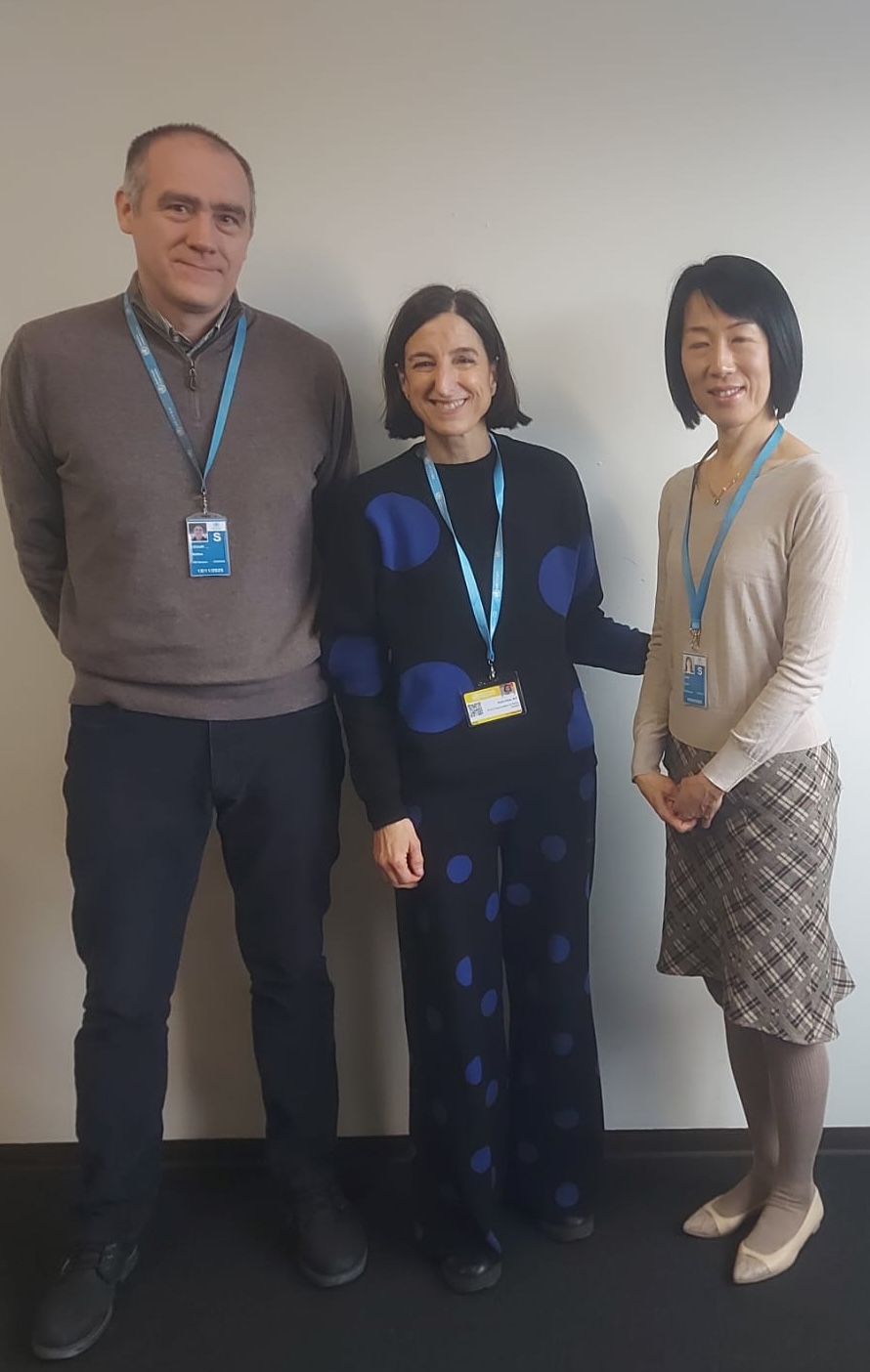
ICOPE 2 Meeting with Dr. Matteo Cesari and Dr. Yuka Sumi
Meeting with the Mental Health Department
A discussion with Devora Kestel and Mark Van Ommeren explored the integration of mental health into primary care, emphasizing existing screening tools and WONCA's planned campaigns for World Family Doctor Day.
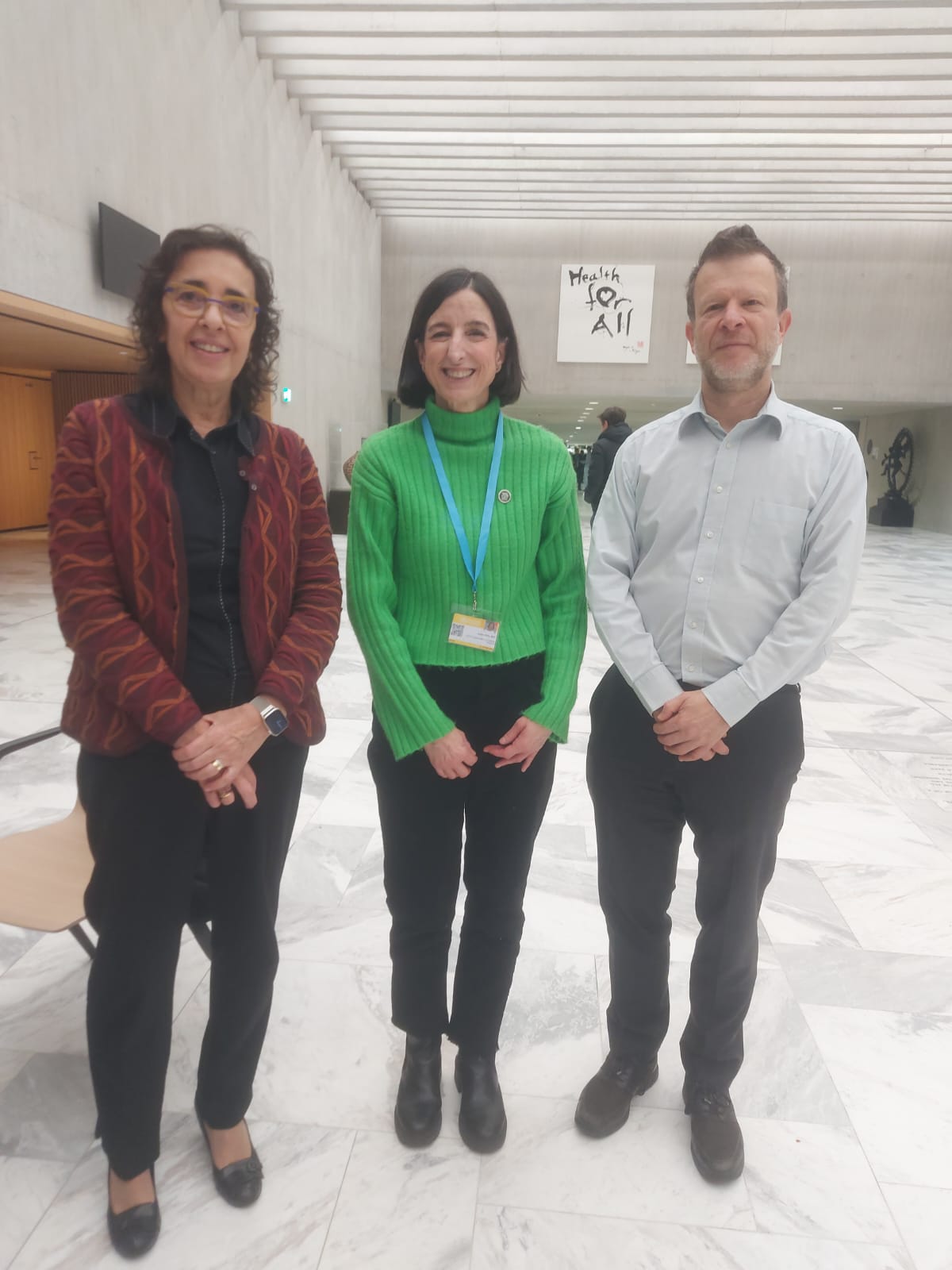
Meeting with Mental Health Unit
Meeting with the Quality of Care and Patient Safety Unit
A meeting with Dr. Blerta Maliqi, Unit Head for Quality of Care and Patient Safety at the World Health Organization (WHO), centered on implementing quality indicators in primary care, sharing WONCA's initiatives in patient safety and quality improvement.
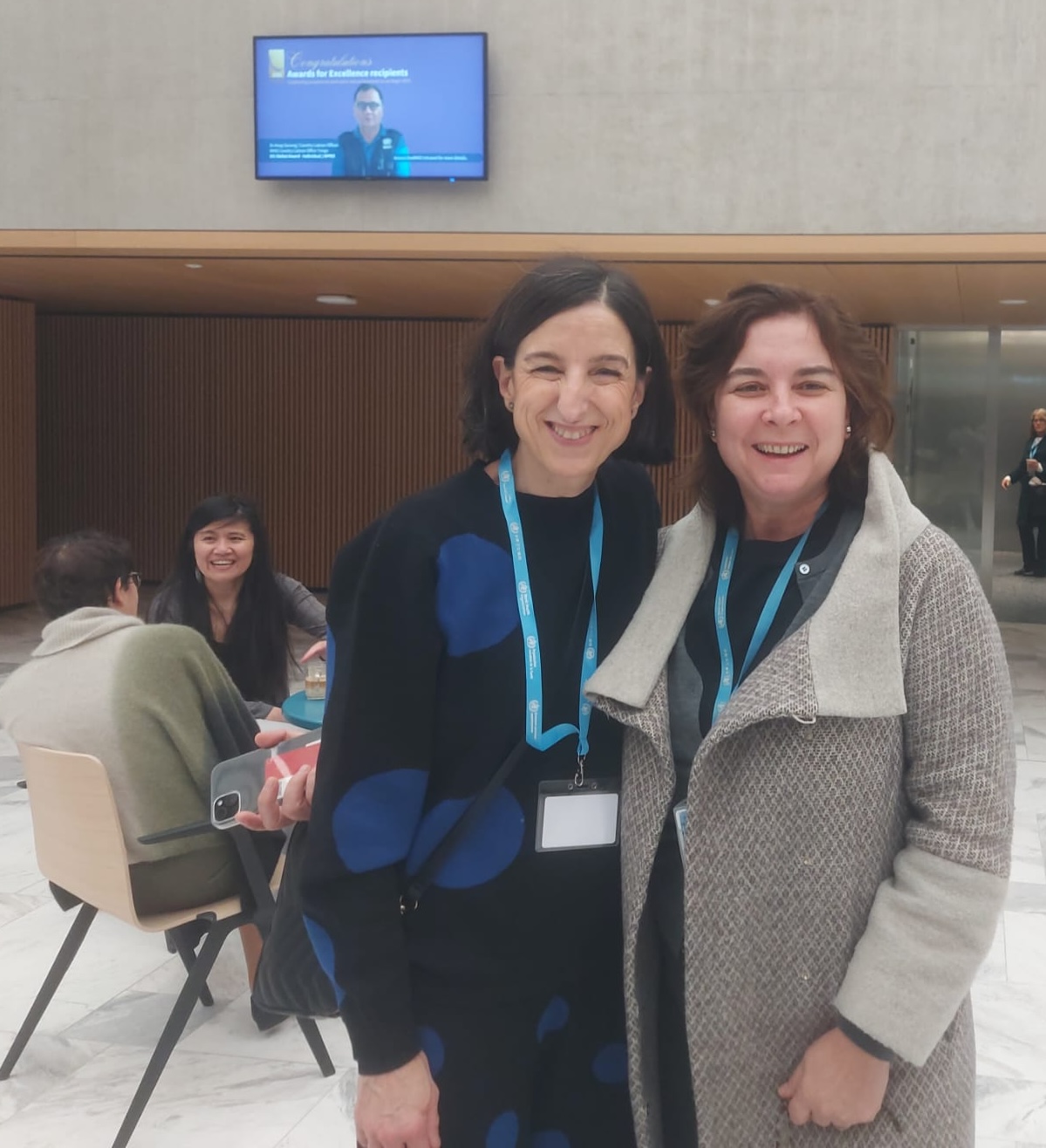
Meeting with Quality of Care and Patient Safety Unit
Meeting with the Non-Communicable Diseases (NCDs) Department
A Non-Communicable Diseases (NCDs) Department meeting with Dr. Alarcos Cieza and Mr. Antony Duttine addressed integrating NCD management into family medicine curricula and supporting the WHO Rehabilitation Service Package.
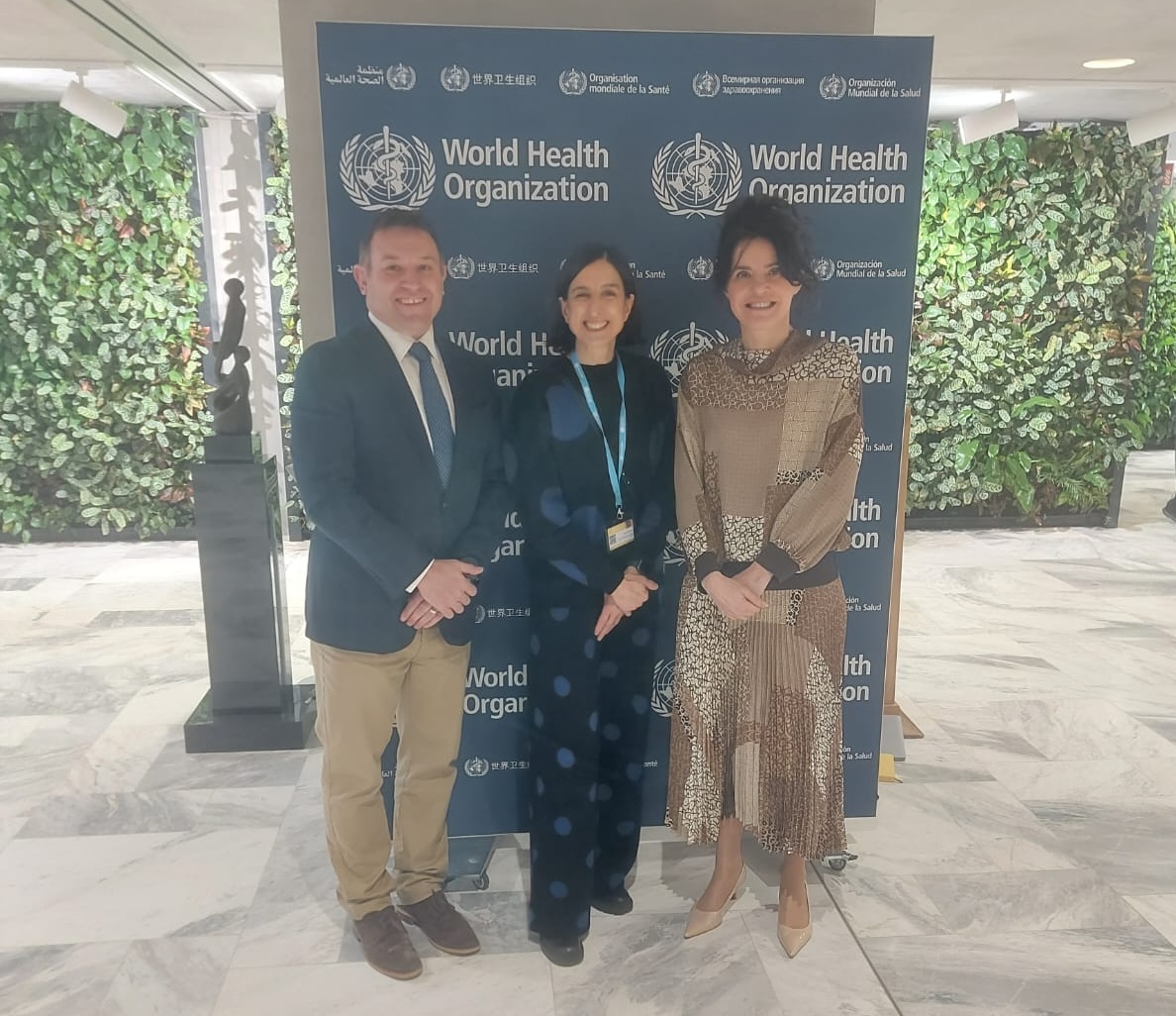
Meeting with NCD Department
Meeting with Dr. John Fogarty
A meeting with Dr. John Fogarty, WONCA's focal point at WHO, reviewed our WHO action plan and discussed collaboration on developing training materials for the PHC WHO Academy course and learning tools.
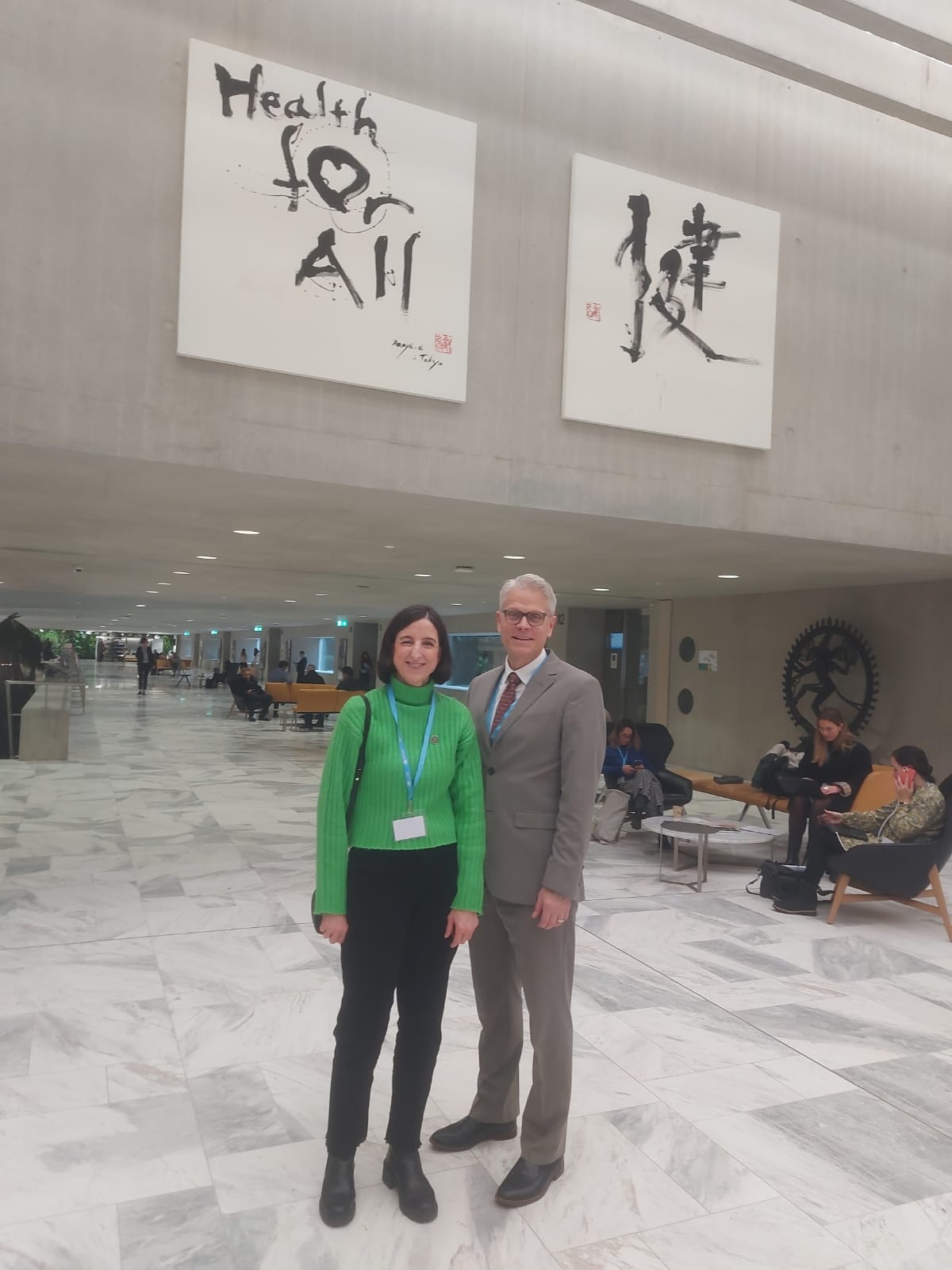
Meeting with Dr. John Fogarty
Engagement with Other Non-State Actors
Additionally, I engaged with other non-state actors, including the Global Coalition of Circulatory Health and the Non-Communicable Disease Alliance, represented by Kelcy Armstrong and Mina Pécot-Démiaux, respectively. These discussions focused on WONCA's involvement in upcoming global health events and advocacy efforts addressing public health challenges. WONCA strengthened the collaboration with IFMSA (International Federation of Medical Students Association) whose representative, Lucía Pérez, did two statements on behalf of WONCA.
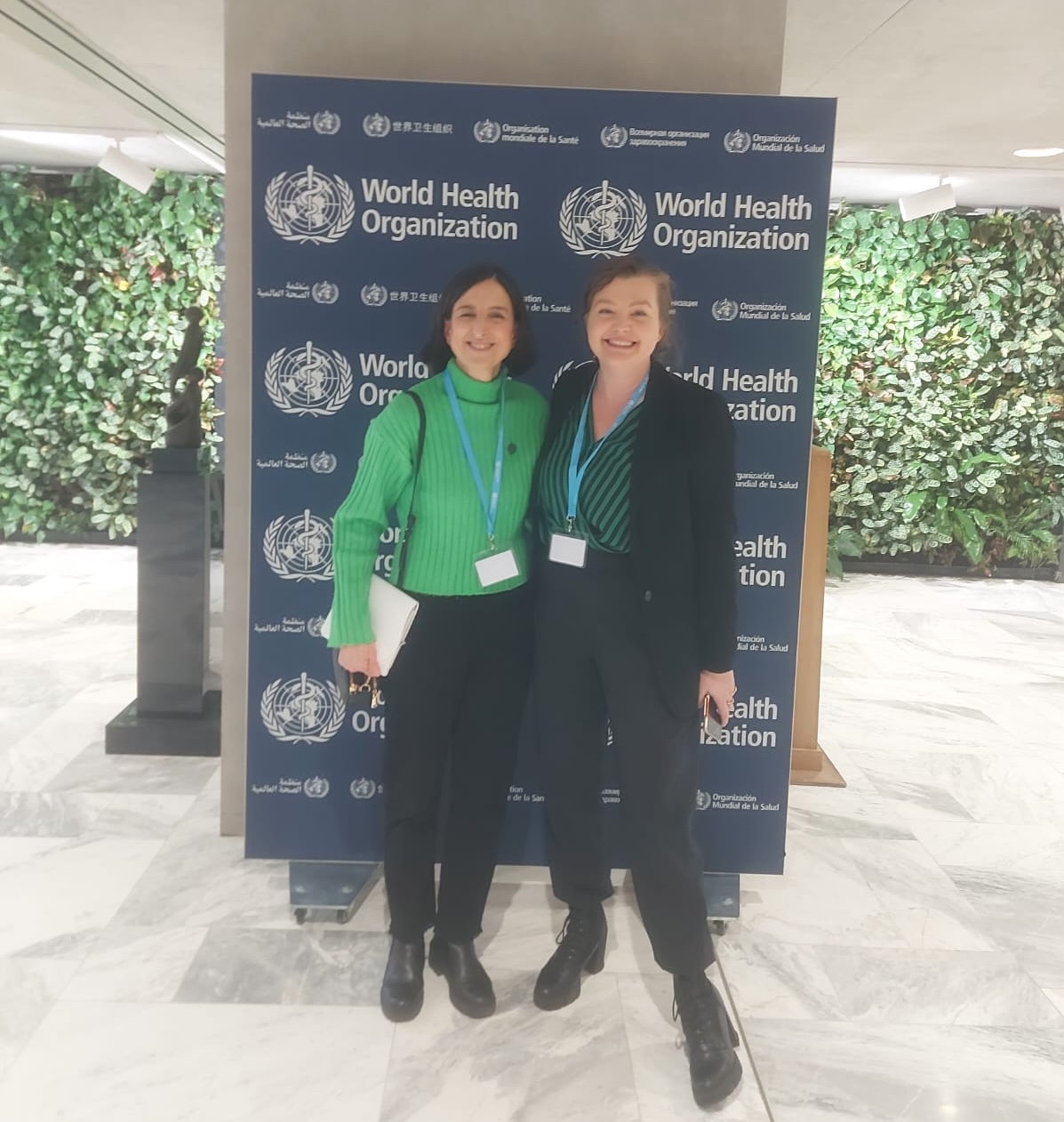
Meeting with Kelcy Armstrong
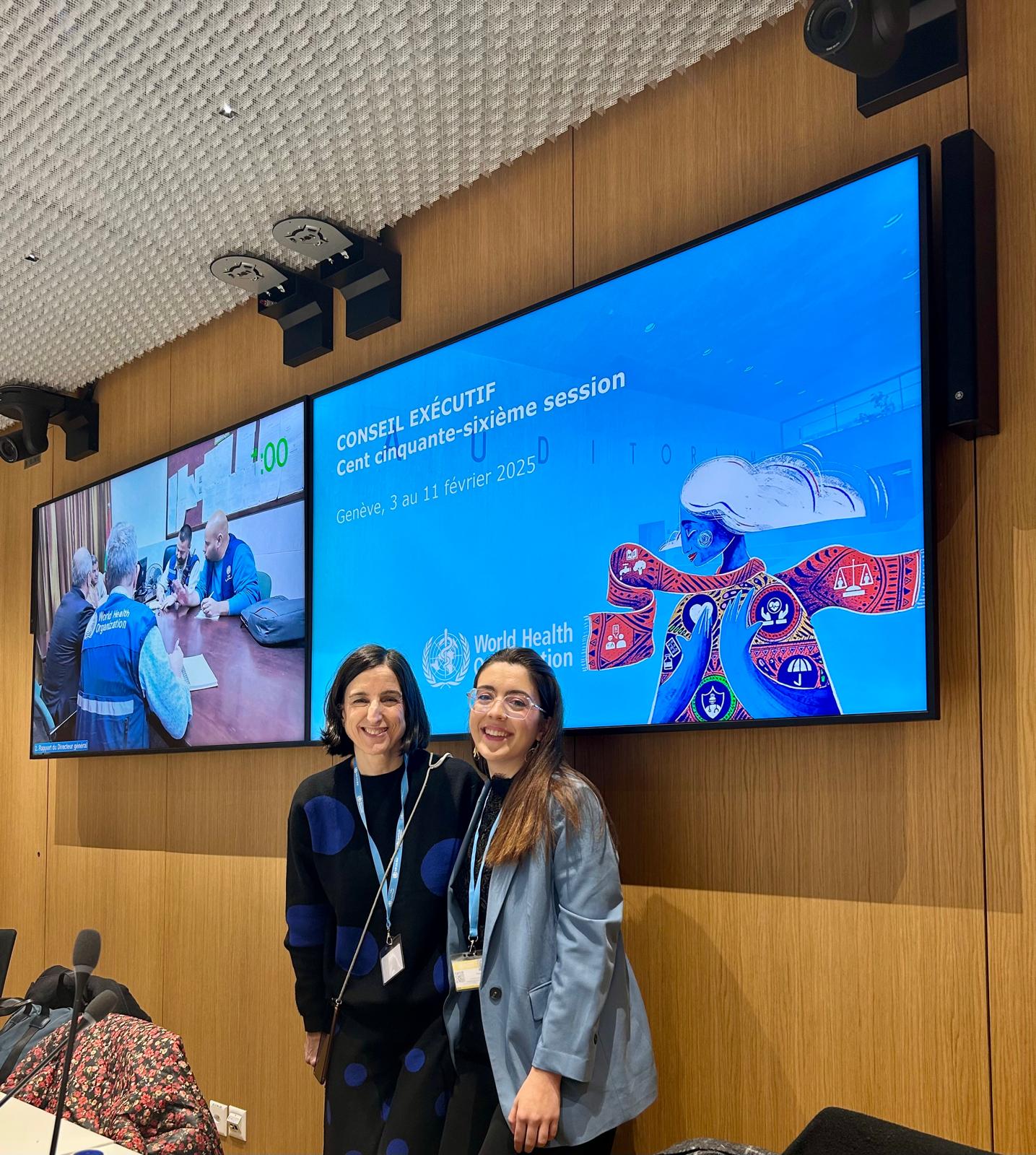
Meeting with IFMSA Representative Lucía Pérez
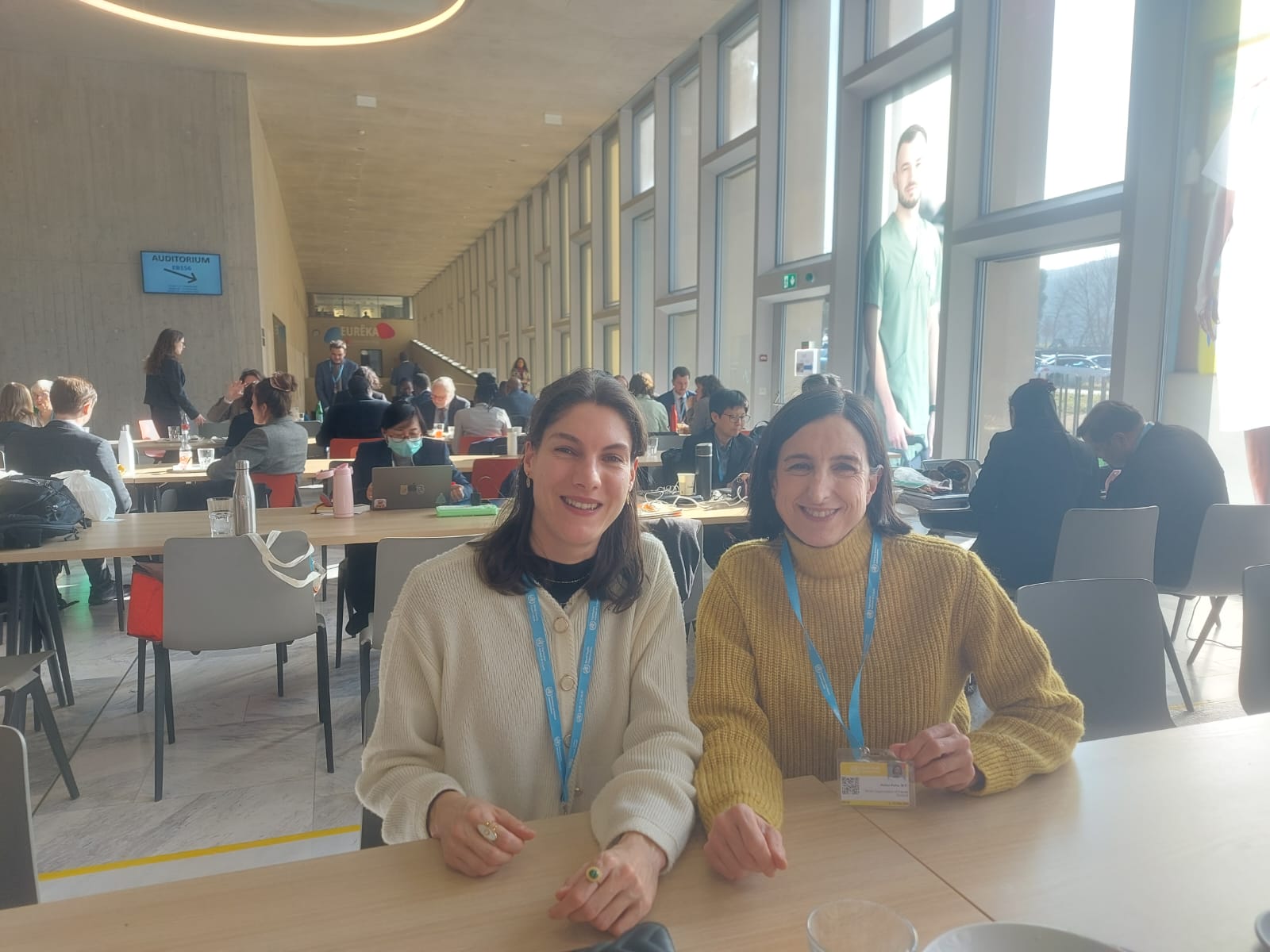
Meeting with NCD Alliance
Conclusion
As the WONCA-WHO liaison officer, my participation in these meetings and the presentation of our statements reaffirmed WONCA's dedication to improving healthcare delivery worldwide. Together, we can significantly influence health policy and practice, ensuring that every person has access to quality primary healthcare.
Thank you to all WONCA members for your continued support as we advocate for effective and equitable healthcare for all at WHO headquarters.
María Pilar Astier Peña
WONCA WHO Liaison Officer
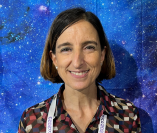
Additional Resources